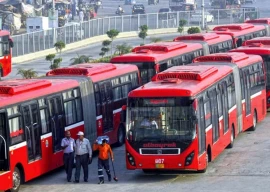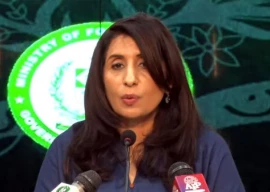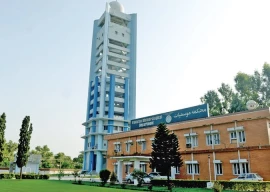
No doubt that the gesture will win widespread praise from the country’s military establishment. One can almost imagine the quiet background briefings given to select groups of journalists where they will be told of the differences between America’s relations with the civilian government as compared to the Pakistan Army.
In the analytical cacophony of the next few days, what is quite likely to be completely ignored is the American tendency of continuing to treat Pakistan as a country split between various centres of power.
Perhaps the Americans have a better understanding of Pakistan than most of us. Top western military men working with the Internal Security Assistance Force in Afghanistan lose no opportunity to tell the world that the Pakistan Army and not the civilian government will be central to any Afghan settlement.
At home, central executive authority gets more and more fractured by the day. The civilian government has left the war against extremists entirely to the army, refusing to take ownership of it, stubbornly rejecting all responsibility for a situation that they know, and say, can never be resolved purely through military means.
The judiciary is up in arms against the government over constitutional amendments. Its last judgement is indicative of things to come. They are willing to validate the 18th Amendment as long as the government keeps its hands off them.
Many may argue that is how it should be. But measured against strict principles of supremacy of the people, some may be tempted to describe it as blackmail.
One wonders how far the split in executive authority in Pakistan will go. There is little that the federal government can do in the Punjab, the country’s most populous province having become a citadel for the brothers from Model Town. Be it the lynching in Sialkot or the rampant criminality in the Punjab police department, it is another country as far as the federal government is concerned.
The bloodbath in Karachi is a concern for no one it seems, be it the federal government, the army, the judiciary or our mushrooming cadres of talk show hosts. Mafias backed by the MQM and the ANP can choose to go on killing sprees as and when they want. No one is ever held responsible, no one ever holds anyone responsible.
The BBC’s Urdu Service went around Karachi last week in search of the proverbial common man, wanting to ask what they made of the city’s fortnight of violence. A shopkeeper said it all: as long as these political parties continue to exist, he said, there can be no peace in Karachi.
This is the extent of people’s cynicism. We saw shades of it in 1990, 1993, 1996, 1999 and then again, as a military ruler became more of politician, in 2007. Every time we saw this cynicism surface, there was a regime change that strengthened the army’s political role at the expense of civilian authority. Is it going to be the same again?
People went to the polls in large numbers in 2008 because they were sick of Mr Musharraf’s self-serving ways and his near total loss of control. They wanted an elected leadership that could take charge. The shopkeeper quoted here was probably an eager voter. But perhaps like millions of others, he has now begun to question his own wisdom.
In any other country, it would be considered a do or die situation for the political class. In Pakistan, it seems to be business as usual. Only the most incorrigible optimist would describe it as a viable situation.
Published in The Express Tribune, October 24th, 2010.












1725083820-0/Untitled-design-(24)1725083820-0-270x192.webp)
1725096749-0/Untitled-design-(1)1725096749-0-270x192.webp)





COMMENTS (2)
Comments are moderated and generally will be posted if they are on-topic and not abusive.
For more information, please see our Comments FAQ